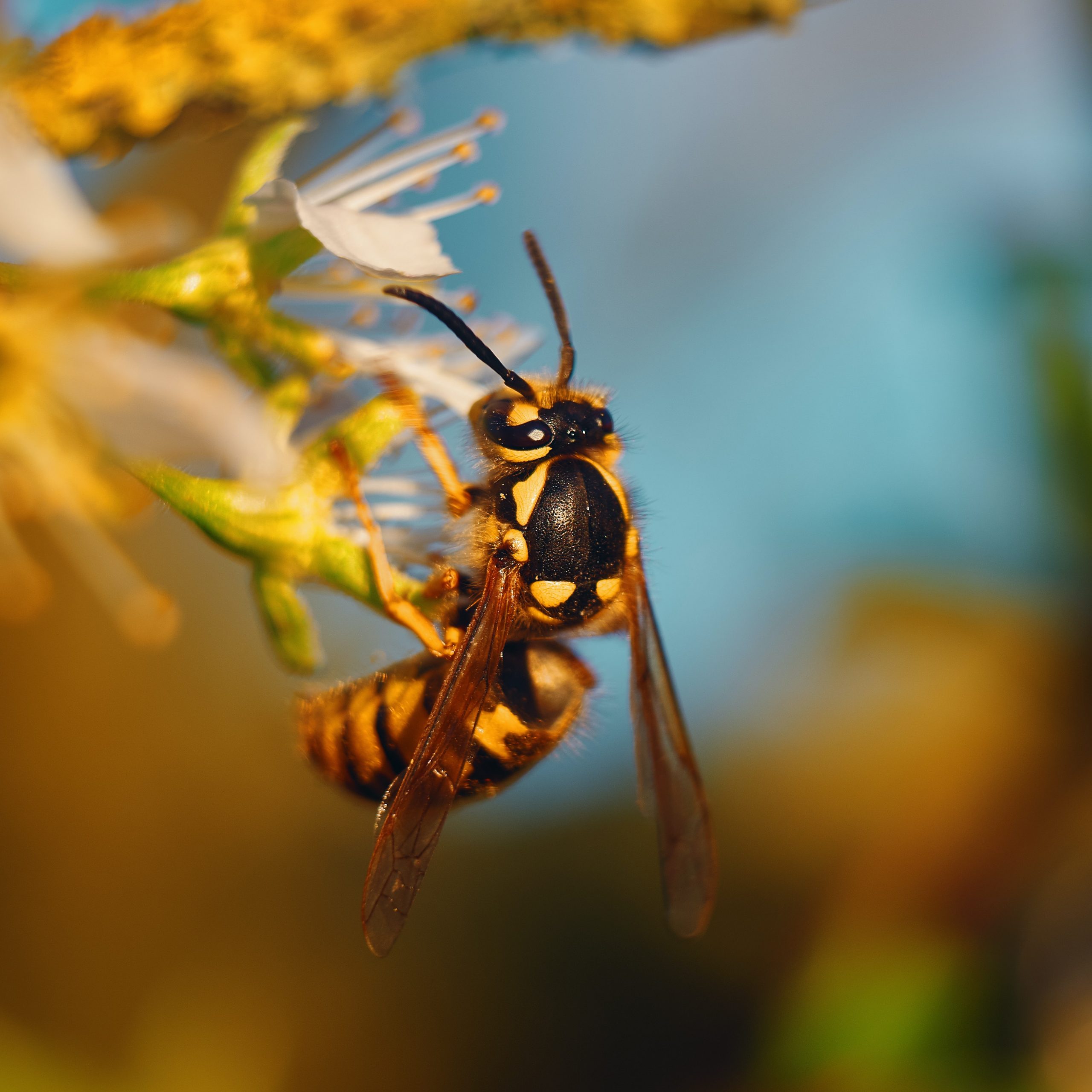The Beneficial Aspects of Wasps, Nature’s Ecological Engineers
Wasps often find themselves in the shadows of more beloved pollinators, like bees and butterflies. However, beyond their menacing appearance, wasps play a pivotal role in maintaining ecological balance and contributing to the well-being of our environment. In this exploration, we will debunk common misconceptions and shed light on the remarkable benefits of wasps.
Importance of Wasps in Ecosystem
Pest Control Champions:
Contrary to popular belief, wasps are natural predators that excel in pest control. They act as efficient hunters, targeting a variety of insects that can be harmful to crops and gardens. By preying on pests like caterpillars and aphids, wasps contribute significantly to agricultural health.

Impact on Agriculture:
The agricultural sector benefits immensely from wasps’ pest control prowess. Their presence helps reduce the need for chemical pesticides, fostering a more sustainable and environmentally friendly approach to farming.
Ecological Contributions
Pollination Partners:
While not as renowned as bees in the pollination realm, certain wasp species play a vital role in the pollination of plants. They visit flowers in search of nectar and inadvertently transfer pollen, supporting the reproduction of various plant species.
Role in Plant Life Cycle:
Understanding the symbiotic relationship between wasps and plants is crucial. Some plant species have evolved to depend on wasps for pollination, highlighting the intricate web of connections within ecosystems.
Supporting Biodiversity:
Wasps contribute to the overall biodiversity by participating in food chains and intricate ecological relationships. Their presence enhances the resilience of ecosystems, ensuring the survival of diverse flora and fauna.
Wasp Species and Their Unique Contributions
Mud Daubers:
Construction Maestros:
Mud dauber wasps are renowned for their exceptional nest-building skills. These wasps create intricate mud nests to house their eggs. The structures are not only architectural marvels but also serve as effective pest control stations, as mud daubers provision their nests with paralyzed spiders to nourish their larvae.
Parasitoid Wasps:
Nature’s Control Agents:
Parasitoid wasps play a fascinating role in regulating insect populations. They lay their eggs on or inside other insects, and once the eggs hatch, the larvae consume the host from the inside. While this may seem gruesome, it’s a natural mechanism that helps maintain balance in insect populations.
Dispelling Myths and Addressing Concerns
Overcoming Fear:
Educating for Coexistence:
Understanding the ecological significance of wasps is crucial in overcoming fear and fostering coexistence. By dispelling myths and highlighting their positive contributions, we can appreciate wasps as valuable components of our ecosystems.
Nest Locations and Safety:
Promoting Harmonious Living:
While wasps’ nests can instill fear, it’s essential to recognize that most wasp species are not inherently aggressive. Respecting their space and promoting safe practices around nests ensures a harmonious coexistence.
Frequently Asked Questions (FAQs) About the Benefits of Wasps
Q: Are wasps beneficial to the environment?
A: Yes, many wasp species contribute to ecosystem balance by controlling pest populations and aiding in pollination.
Q: Do wasps play a role in pest control?
A: Absolutely. Wasps, particularly mud daubers, are natural predators of insects and spiders, providing effective pest control.
Q: Are wasps aggressive by nature?
A: While some species can be defensive, most wasps are not inherently aggressive unless provoked. Understanding their behavior promotes coexistence.
Q: What is the purpose of a wasp’s nest?
A: Wasp nests serve as protective homes for their larvae and eggs. Additionally, certain wasps’ nests contribute to pest management.
Q: Can wasps be beneficial for gardens?
A: Yes, wasps aid in pollination, benefiting plant diversity and supporting healthy garden ecosystems.
Q: How can I prevent wasp stings?
A: Respect their space, avoid sudden movements, and remove attractants like food to minimize the risk of stings.
Q: Do all wasps sting?
A: No, not all wasp species are equipped with stingers. Many are non-aggressive and don’t pose a threat to humans.
Q: What should I do if I find a wasp nest near my home?
A: Contact a professional pest control service to assess the situation and safely remove the nest if necessary.
Q: Are there non-lethal ways to coexist with wasps?
A: Yes, understanding wasp behavior, respecting their habitats, and adopting preventative measures can facilitate peaceful coexistence.
Q: How can I encourage wasps in my garden for natural pest control?
A: Planting diverse flowers and avoiding excessive pesticide use can attract beneficial wasps to your garden, aiding in pest management.
Conclusion
In conclusion, the benefits of wasps extend far beyond their intimidating appearance. From efficient pest control to contributing to the pollination process, wasps play integral roles in ecosystems. Embracing a more nuanced understanding of these creatures allows us to appreciate the delicate balance of nature and the interconnectedness of all living organisms.




